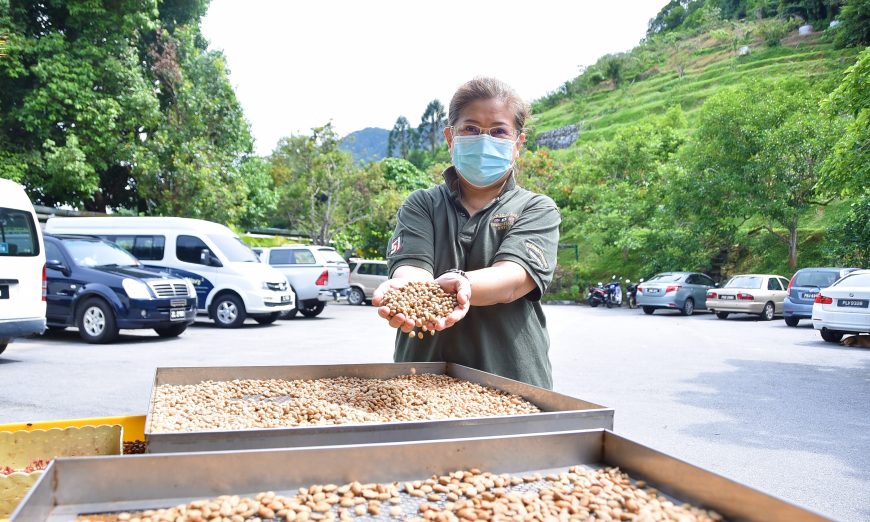IF you bring your spouse or girlfriend for a visit to Penang Tropical Fruit Farm in Teluk Bahang, do not leave the place without ordering a ‘Habibi’ for her to drink.
The ‘Habibi’ is a combination of coffee and honey concocted by the farm’s owner Quah Ewe Kheng, 75, and his business partner, Allison Chan Mei Leng, 55. They named it ‘Habibi’, an Arabic word for “my love”, “my dear”, “my darling” or “beloved”.
“Habibi is our latest introduction. We notice that Arab couples are very ‘manja’ (lovey-dovey) to each other when they visit the farm. The men will call their wives “Habibi”, thus we decided to come up with a drink after that name,” Chan told Buletin Mutiara in an interview recently.
“We make the coffee differently. Habibi is not a strong coffee but it is certainly nice to drink. Coffee production involves a lot of work.”
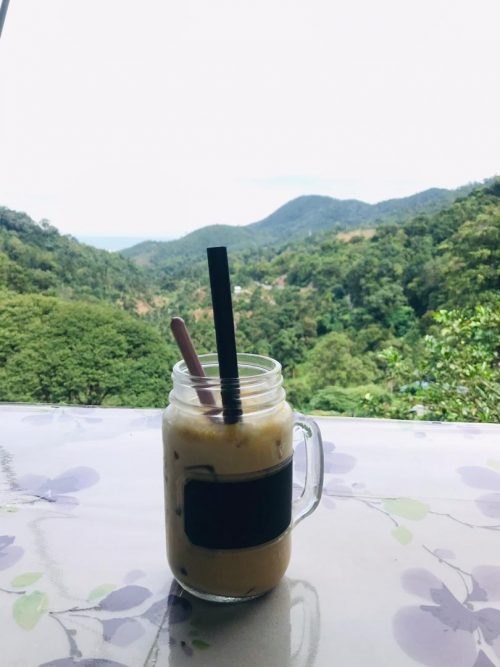
Although the farm was opened in 1998, it started to grow coffee plants only about three years ago. They were imported and to date, the farm has now 50 coffee plants of the robusta and arabica species.
When Quah bought the 25-acre farm in 1993, it was a rubber plantation. He then acquired many rare and exotic fruit trees from Central and South America, Central Africa, the Middle East, the Carribean and the Pacific Islands to turn it into a fruit farm.
Today, there are over 250 types of fruit trees in the Penang Tropical Fruit Farm. You can find fruits like Fijian longan, Taiwanese grapefruit, Chinese chestnut, Surinam cherry, macadamia nuts, avocados, abiu, sapote, passion fruit, hairless rambutan, rose apple, ciku, soursop, mangosteen, mango, and durian to name a few.
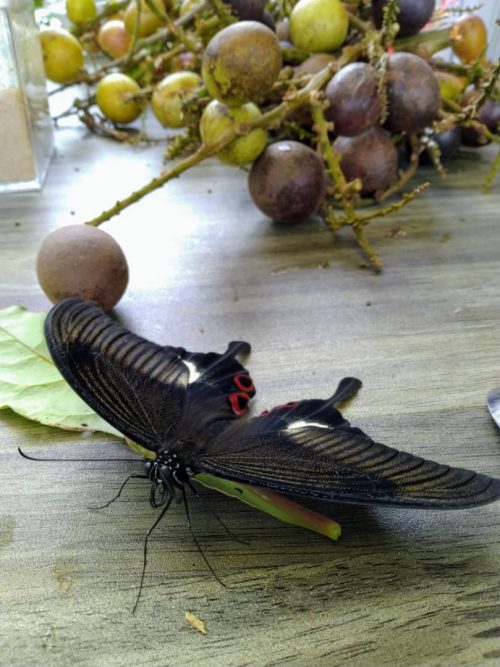
Quah said they would continue as it is now until they locate a property to focus on coffee.
“You find coffee stalls all over the place. Almost everyone drinks coffee but many don’t understand how coffee plants are grown and how coffee is made,” he said.
“We like to find a good property for a coffee project and really educate people what coffee is all about. Some people think coffee is only grown in cold countries.
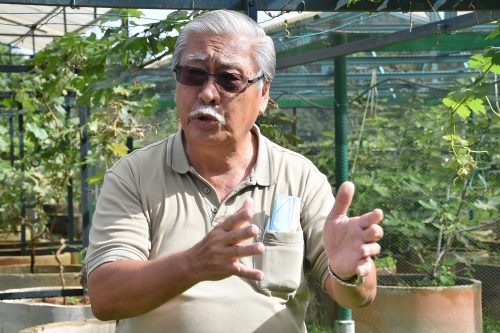
“When we succeed, there will be a tour to take visitors around the coffee farm.
“For future plan, I’m thinking more of introducing agro-tourism.
“Now, you will hardly find people venturing into agro-tourism because it is time consuming. It takes a long time before you can get good returns.”
The farm offers guided tours with different packages, educating local and foreign visitors on the variety of fruits and their uses. For enquiries, call +6019-4271953 or +60124971931 or email [email protected].
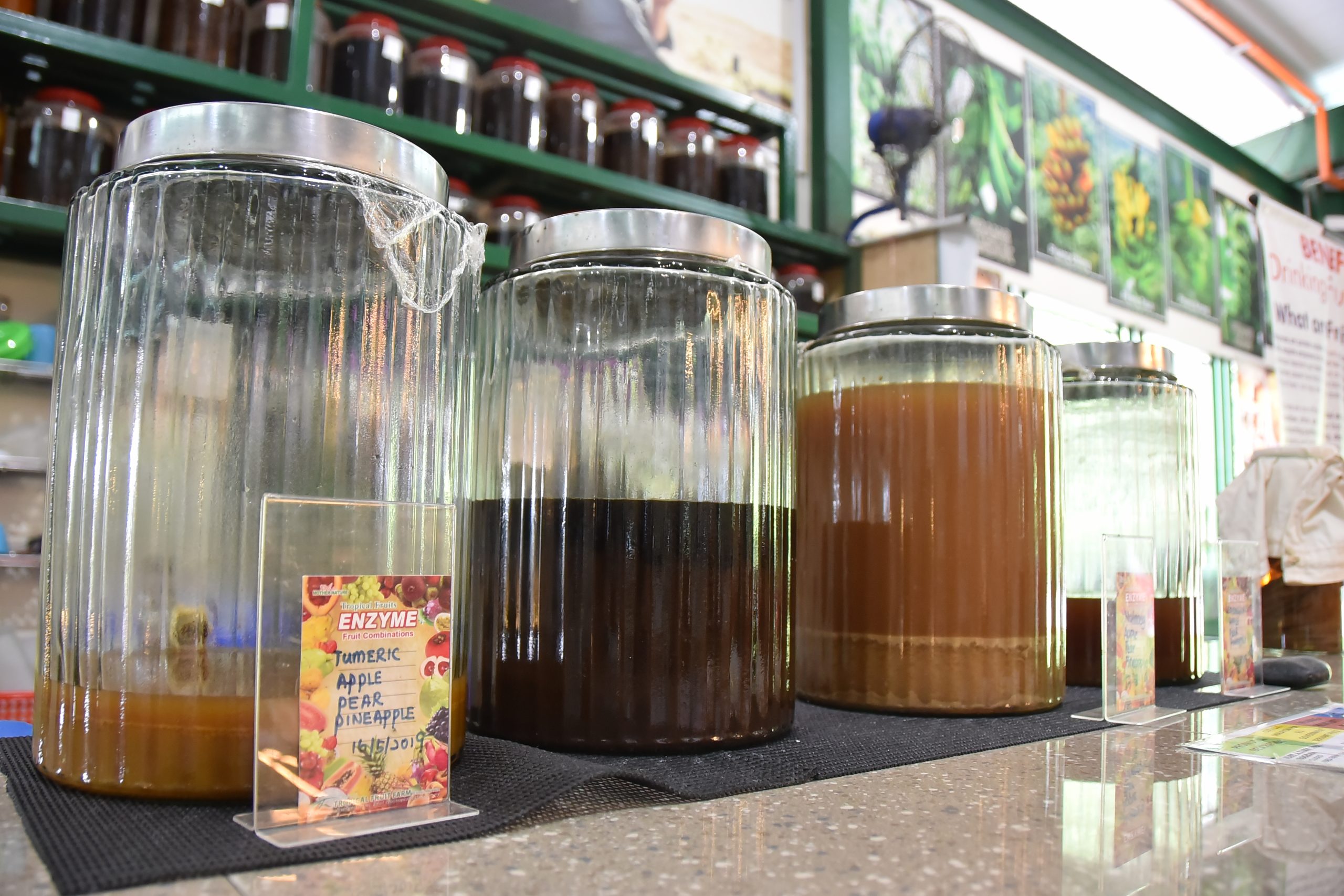
Lessons are also given on the process of how to get virgin coconut oil through a fermentation process.
The farm is also very successful in doing enzymes from ginger, turmeric and so forth.
In fact, it conducts enzyme tour which gives a detailed explanation of enzymes and how to do enzymes, coconut oil and soap making.
While Quah oversees the smooth running of the farm and conducts guided tours, Chan concentrates on coffee making and other fruit drinks, and health care skin products, especially made from coconuts, for sale in their gift shop.
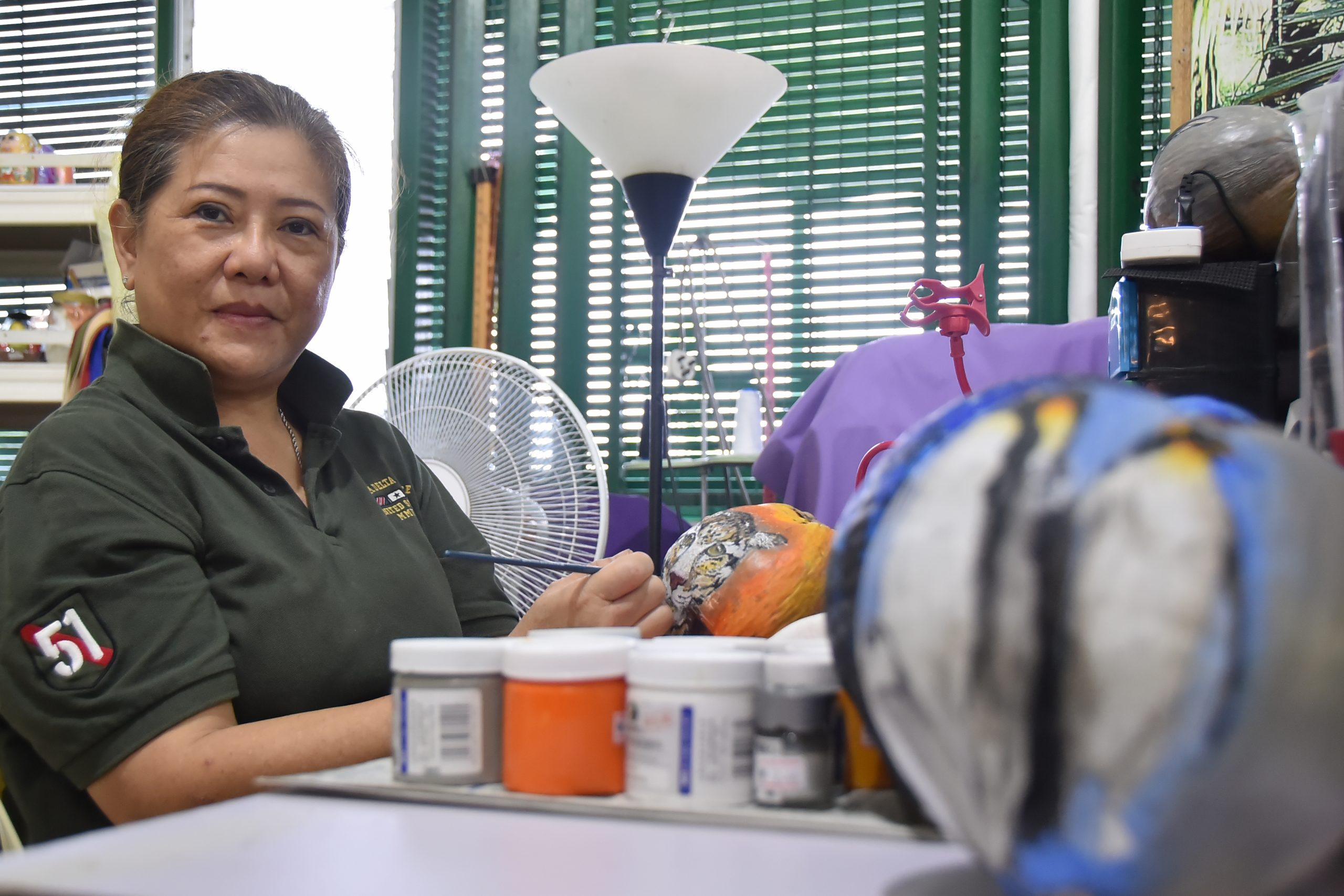
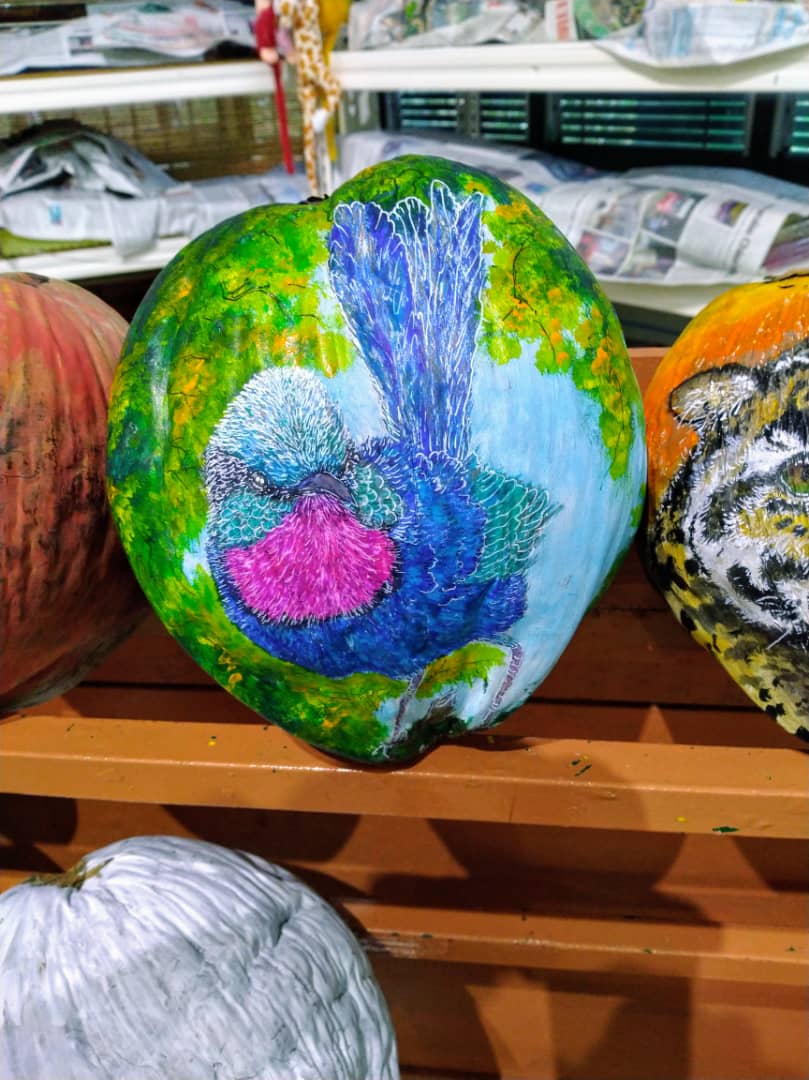
The Hobbit House in the fruit farm is a testament to Chan’s creativity. She is also artistic. Her artwork on coconuts is bound to catch your eyes when you browse for the items at her gift shop.
“I do it during my leisure time. The painted coconuts are not for sale, just for decoration. The coconut husks look so dull, so I do some drawing on them,” she said.
“I am an artist. I was a batik artist when I started working for Quah at the Craft Batik factory. Now, I concentrate more on making chemical-free beauty products, like hand soap and shampoo. Many of the items that I come up with use coconut oil and byproducts of the farm. We like to do things that people don’t do.”
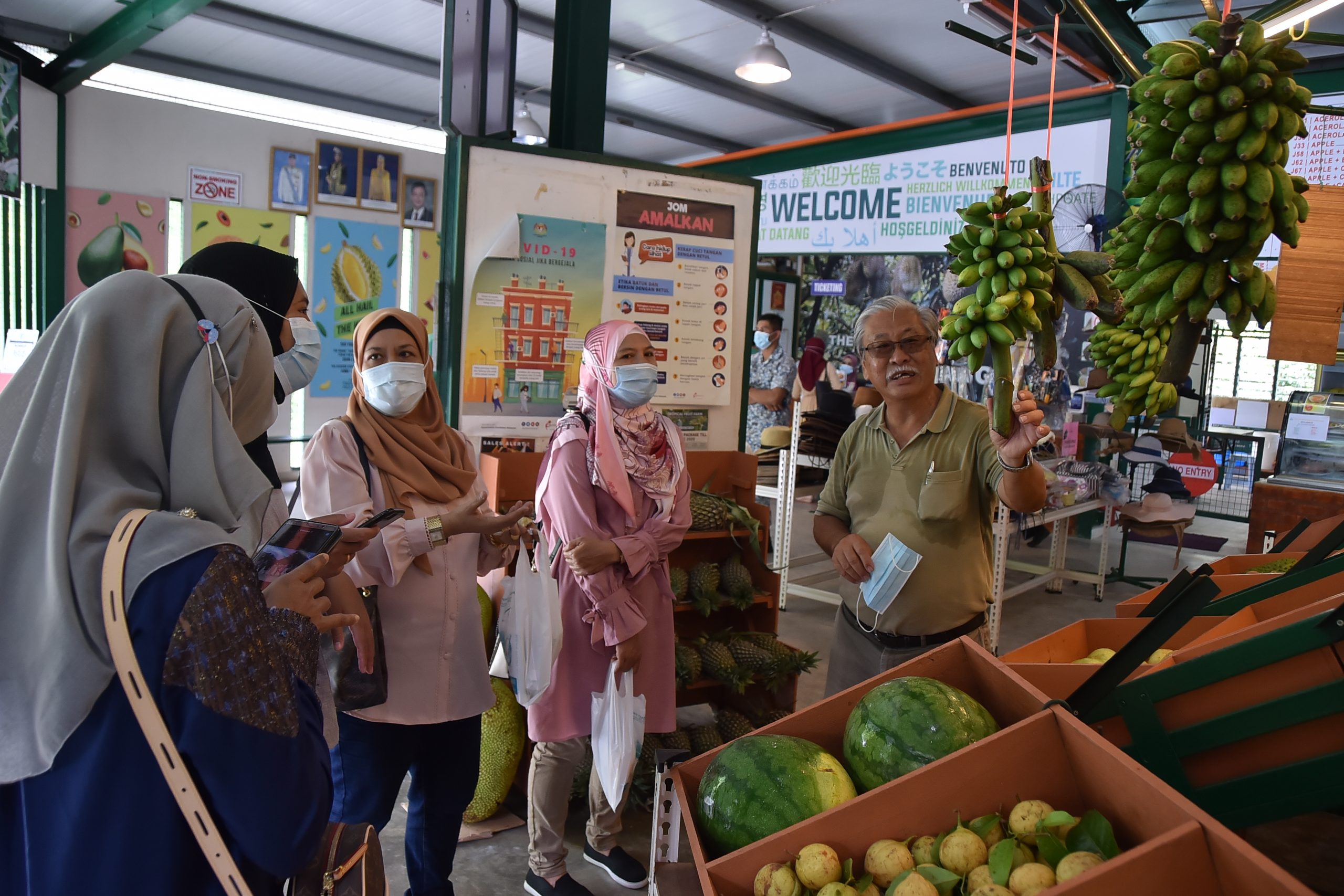
What she does at the farm generally is linked to fruits.
And now, she is planning to introduce coffee with coconut milk and Americano (black coffee) with passion fruit.
At present the farm’s signature dessert is cendol with durian.
But remember to enjoy a ‘Habibi’ drink too.
Story by K.H. Ong
Pix by Adleena Rahayu Ahmad Radzi and Yap Lee Ying

